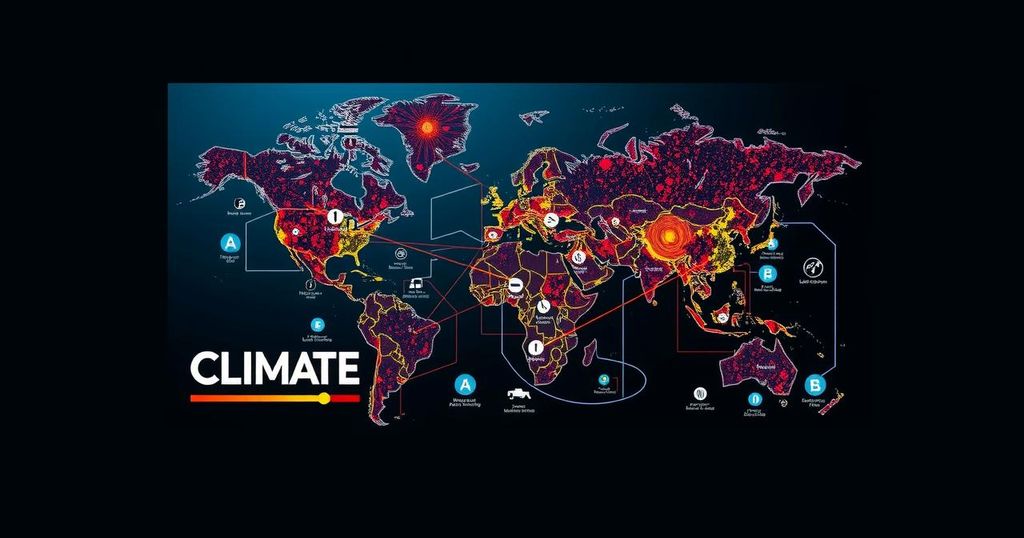The COP29 climate negotiations in Baku are set against a backdrop of severe global crises, complicating the pursuit of ambitious climate action. Key issues include securing financial commitments from developed nations and navigating the challenges posed by leadership changes and geopolitical tensions. Despite these hurdles, some experts remain optimistic about achieving consensus during this pivotal summit.
The 29th UN Climate Change Conference (COP29), taking place from November 11-22 in Baku, Azerbaijan, faces unprecedented challenges amid global crises such as conflicts in Ukraine and the Middle East and economic uncertainty. Azerbaijan’s reliance on oil and gas and its authoritarian governance complicate negotiations, particularly regarding significant financial commitments from developed nations to developing countries. Despite these obstacles, some experts believe consensus is achievable, although the geopolitical landscape, especially after Donald Trump’s election, casts a shadow on expectations for ambitious climate agreements. Central to the discussions is the urgency of financing climate initiatives as vulnerable nations brace for extreme weather impacts and the countdown to a 2025 deadline for new climate pledges. COP conferences have historically served as diplomatic forums fostering cooperation between developed and developing countries, yet current international divisions threaten this collaborative spirit. As nations grapple with both external and internal crises, the ability to secure meaningful commitments remains uncertain, underscoring the importance of global solidarity moving forward in the fight against climate change.
The context surrounding COP29 is marked by increasing geopolitical tensions and domestic issues that impact international cooperation on climate action. The previous summit in Dubai yielded partial progress towards reducing fossil fuel dependency, yet the shift to Azerbaijan as the host introduces new challenges due to its lack of experience in climate diplomacy and significant reliance on fossil fuels. The ongoing conflicts and changes in global leadership play a critical role in shaping the discussions and outcomes expected at the conference.
In summary, COP29 presents an intricate landscape for climate negotiations amid global challenges, including recent geopolitical conflicts and leadership changes. Financial commitments from developed nations remain a pivotal issue, compounded by a weakening multilateral framework. Although the potential for an ambitious agreement exists, uncertainties surrounding international relations and internal political dynamics in various countries signal a complex pathway ahead. The conference represents a crucial opportunity for establishing and reinforcing cooperative efforts to mitigate climate change at a critical juncture for the global community.
Original Source: international.la-croix.com







